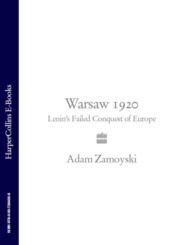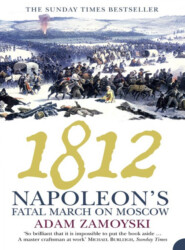По всем вопросам обращайтесь на: info@litportal.ru
(©) 2003-2025.
✖
Rites of Peace: The Fall of Napoleon and the Congress of Vienna
Настройки чтения
Размер шрифта
Высота строк
Поля
(#litres_trial_promo)
The only encouraging news that reached allied headquarters at the end of January was that Denmark had abandoned her French ally and joined the coalition. By the Treaty of Kiel, signed on 14 January 1814, Denmark ceded Norway to Sweden. In return, she was to receive what had been Swedish Pomerania and recover the island of Rügen, along with one million thalers. She also had to accept Britain’s retention of Heligoland and supply 10,000 men, paid for by Britain, to fight against France.
On his way to the Continent, Castlereagh had expressed the hope that the ministers of the four principal allies might be induced to discuss and settle policy in common rather than in one-to-one meetings amongst themselves. On 28 January he managed to convene the first such meeting, attended by Metternich and Stadion representing Austria, Hardenberg Prussia, and the trio of Nesselrode, Razumovsky and Pozzo di Borgo representing Russia.
Castlereagh opened the proceedings by stating that while they must negotiate with Napoleon as long as the latter was offering to settle, they must also pursue the campaign with vigour. At the same time he urged caution, reminding them of the danger of their situation and the unknown perils that might attend an allied occupation of Paris and a change of regime. He expressed the hope that while there was ‘no wish in any of the Allied sovereigns inconsistent with the restoration of the ancient Family, should a change be brought on by the act of the nation itself’, they must nevertheless negotiate with the government of France as it stood. Accordingly, they designated plenipotentiaries to assemble at Châtillon by 3 February.
Castlereagh insisted that the ‘Frankfurt proposals’ were of no relevance, and that they must negotiate on the basis not of France’s ‘natural’ frontiers but rather her ‘ancient’ frontiers of 1792. Metternich supported him in this, but suggested that France be offered some increases, in areas such as the left bank of the Rhine and Savoy. Castlereagh disagreed, but he also rejected outright the Russian proposal that France should be entirely excluded from any say in the arrangements made with regard to those territories which she would be forced to give up. He then outlined the British cabinet’s proposals for a final settlement, which he suggested they accept as the basis for the forthcoming negotiations. In his account of the conference Castlereagh assured Liverpool that he had found the allies ‘perfectly sincere and cordial in the exclusion of the maritime question from the negotiations’. Since everything had been kept remarkably vague except for the frontiers of France, the Dutch ‘barrier’ and maritime rights, the whole exercise had served little purpose beyond that of getting the others to accept in principle the British position. Nor was he going to leave it at that.
(#litres_trial_promo)
The plenipotentiaries assembled on 3 February in the snowbound little town of Châtillon, where Caulaincourt had been kicking his heels for two weeks. Metternich had delegated Stadion, Razumovsky represented Russia, and Humboldt Prussia. Britain was represented by the trio of Aberdeen, Stewart and Cathcart. Castlereagh composed a set of instructions for their benefit, almost a sermon on how they were to behave. ‘The power of Great Britain to do good depends not merely on its resources but upon a sense of its impartiality and the reconciling character of its influence,’ he lectured them. ‘To be authoritative it must be impartial. To be impartial it must not be in exclusive relations with any particular Court.’ This did not, apparently, affect the business of getting what Britain wanted, and therein lay the reason for Castlereagh, alone of the ministers, going to Châtillon in person to supervise his three plenipotentiaries.
(#litres_trial_promo)
At the first formal session of the congress on 5 February, he reminded all those assembled that Britain was not prepared to bargain, and would only return French and Dutch colonies if she found the settlement reached satisfactory as a whole. The following day he sketched out his own vision, and insisted on writing into the basis for negotiation not only France’s 1792 frontiers, but also the extension of Holland and the creation of the barrier. ‘In closing this statement I begged it might be understood, that it was the wish of my Government in peace and in war to connect their interests with those of the Continent – that whilst the state of Europe afforded little hope of a better order of things, Great Britain had no other course left, than to create an independent existence for herself, but that now that she might look forward to a return to ancient principles, she was ready to make the necessary sacrifices on her part, to reconstruct a balance in Europe,’ he reported to Liverpool. Having thus staked out Britain’s position at Châtillon, Castlereagh hurried back to headquarters, which had now moved on to Troyes, leaving the plenipotentiaries to get on with the business in hand.
(#litres_trial_promo)
Вы ознакомились с фрагментом книги.
Приобретайте полный текст книги у нашего партнера:
Приобретайте полный текст книги у нашего партнера:











